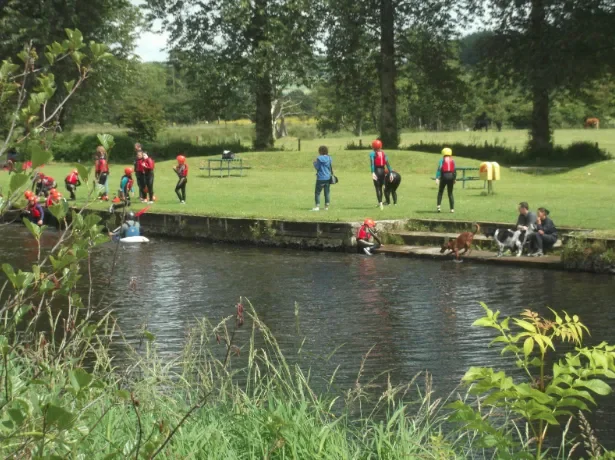

Impact of COVID-19 restrictions particularly severe on children with special needs
Parents of children with special needs feel that their children have regressed during the period of COVID-19 restrictions according to new research led by Dr. Carol Barron from DCU’s School of Nursing, Psychotherapy and Community Health.
The research, Impact of Coronavirus Restrictions on Children and Young People, identifies the impacts of social restrictions on children and adolescents’ play worlds, hanging out and friendship groups in this unprecedented era of social restrictions.
It also found that children with special needs were suffering from a lack of routine, with the disruptions to their daily routines having a significant negative impact for them. Many children ’s behaviour and social skills regressed during this period of social isolation and it negatively impacted their mental health. The findings came from a survey that was conducted in May and early June.
A total of 1,553 parents and children completed the survey. Overwhelmingly mothers completed the adult section of the survey (94.5%), with respondents from all 26 counties. 181 respondents were either parents of children with special needs, or children with special needs themselves. The survey was supported by the Department of Children and Youth Affairs and Dublin City Council.
Dr. Carol Barron said
"Children are not the face of this pandemic but they risk being among its greatest victims. Children report significant difficulties due to social isolation and children with special needs are disproportionately impacted. The need for children (4 – 18 Years) to have social interaction with their peers has become very evident from these research findings and the use of technologies to try to overcome the lack of social contact is only minimally effective.
Children report emotional, social, physical and behavioural difficulties. Play is defined as a fundamental right under the United Nations Convention on the Rights of the Child and play has enormous benefits to children’s overall wellbeing."
Key findings
Disruption to daily life
93.4% of parents tell us that their daily routine has been altered due to COVID-19 as do 98% of children. 87.3% of children advise us that they did schoolwork in the last week before completing the survey, which correlates well with parents’ feedback of 84.6%.
Parents of children with special needs reported that their child’s behaviour and social skills regressed during this period of social isolation. This regression has been found to be both mild ‘I feel that my child has slightly regressed in social skills due to not meeting friends’ (Mother, Cavan), to very significant regression ‘Social skills have regressed massively and now very fearful of other grown-ups from outside our home’ (Mother, Tipperary).
Many parents told the researchers that they are becoming overwhelmed with the addition of new roles during this period “working from home along with homeschooling, [….] its formal school work that’s been the biggest challenge” (Mother, Galway).
Missing friends
Children, teenagers and parents all agreed and acknowledged that the single, hardest impact of social restrictions on children and teenagers is not being able to have face to face contact with their friends. 64.9% of parents reported that during the period of social restrictions, their children were most upset with their inability to meet their friends, whilst 72.2% of children themselves tell us the same. Over 50% of the children and parents also reported that were also very upset with the restrictions on playing sport and the closure of schools.
Children and teenagers with special needs along with their parents all acknowledge that the children’s mental health has been negatively impacted by social distancing and their inability to socialise with their peers.
The research also found that ‘having no one to play with’ as one of the most difficult aspects of coping with the social distancing “she longs for her friends, that's who she really wants to play with, her peers” (Mother, Wicklow).
Changes to indoor play
During the period of social restrictions, there have been changes to children’s indoor play activities reported by parents and children, with certain activities increasing between 43 – 59%. The biggest increase in activity seems to be watching TV/Netflix, with 72.7% of parents saying that their child is watching more TV/Netflix than before the pandemic, almost identical to 72.9% of children who also acknowledge this increase. 51% of parents inform us that their child is playing more video games whereas 62.6% of children acknowledge this increase.
Physical activity
33.9% of all parents say their child spent no time or less than 30 minutes being physically active in the previous 24 hours prior to completing the survey. Whereas, 38.5% of children acknowledged they spent no time or less than 30 minutes being physically active in the last 24 hours.
Data points
Survey conducted in late May
1,553 respondents in total
Parents told the researchers about the impact of COVID-19 restrictions on their school aged children aged between 4- 9 Years (59.1%) and 10 – 13 Years (40.9%)
Overwhelmingly mothers completed the adult section of the survey (94.5%).
220 children between the ages of 10 -18 years completed the survey themselves
Respondents from all 26 counties, the top three were Dublin (37.4%), Kildare (14.4%) and Cork (7.5%).
181 respondents were parents of children with special needs and children with special needs themselves
Of those 181, 21% had an intellectual disability, 12% an intellectual and emotional / behavioural disability, 11% a sensorial disability, 11% a physical disability and 11% had intellectual and emotional / behavioural and sensorial disabilities.
Researchers
Chief International Investigator and Ireland's Principal Investigator: Dr Carol Barron, Assistant Professor, School of Nursing, Psychotherapy and Community Health, DCU
Ms Mary Jane Emmet (Research Assistant) DCU
